In this reading list, the Dutch political scientist Cas Mudde recommends 10 books on the contemporary far right and populism written and edited by women scholars. If you would like to add to this list, please add your recommendations in the comments below.
This reading list is part of a theme week published in the run-up to International Women’s Day 2019 (#IWD2019) to showcase and celebrate women’s scholarship across the social sciences and humanities. You can explore more of the week’s content here.
Reading List: 10 Recommended Reads on the Contemporary Far Right and Populism
Image Credit: ‘Marine Le Pen, torn campaign poster, Paris’ by Lorie Shaull licensed under CC BY SA 2.0
Women scholars have written groundbreaking studies on both far right and populist politics. Today, women authors are quite well represented in the study of the far right, both in Europe and North America. But, somewhat surprisingly, particularly given that those such as Margaret Canovan, Chantal Mouffe and Nadia Urbinati are among its founders, women scholars are less visible within the growing field of populism studies. These ten books are just a selection of the wealth of female scholarship on the contemporary far right and populism.
Books on the Far Right
US sociologist Kathleen Blee is a pioneer in the study of the far right in general, and the role of women within the US far right in particular. Her work is defined by remarkable access to far right activists as well as exceptional reflection on the challenges of doing research in this particular field. Inside Organized Racism is one of her classic works, and a must read for anyone interested in the still understudied topic of gender and the far right as well as in doing fieldwork on the far right.
The British-Swiss political scientist Elisabeth Carter wrote one of the most important books on radical right parties in Western Europe of the early 2000s, which unfortunately has received too little attention. One of the first to empirically study the supply-side of radical right party politics, Carter provides an exceptionally comprehensive analysis of their party ideologies and tests the importance of their organisation, leadership, party competition and their institutional environment on the basis of cross-national comparisons. This book remains essential reading for scholars of radical right/populist party politics.
The Italian political sociologists Manuela Caiani and Donatella della Porta, together with the German political scientist and methodologist Claudius Wagemann, are among the first scholars to systematically apply a social movement approach to understanding the far right. Their comparative study analyses discourses, ideologies, online networking and violence, providing a much-missed non-party perspective to the party-dominated European literature. It is also one of the few studies to integrate the US into a comparative framework.
In this original book, US historian Kathleen Belew argues that key activists within the modern US far right were profoundly influenced by (their experiences in) the Vietnam War. It was Vietnam veterans like Louis R. Beam Jr who popularised the notion of ‘leaderless resistance’ within the far right, which inspired many of the most infamous far right terrorists, from Robert Jay Matthews (The Order) to Timothy McVeigh (Oklahoma City bombing). Belew also shows how the defeatist mood in the US led to a push for ‘remasculinisation’, expressed through the paramilitarisation of US culture in general, and the various far-right subcultures in particular.
US sociologist Cynthia Miller-Idriss has always approached (far right) nationalism from original angles, focusing specifically on the role of education and educators. The Extreme Gone Mainstream tackles the most important issue related to the far right today, its mainstreaming, from a cultural perspective. Applying a range of original research methods, Miller-Idriss documents how the commercialisation of far right fashion attracts (disenfranchised) youths and aids the mainstreaming of far right ideas and symbols. Read the LSE RB review here.
Books on Populism
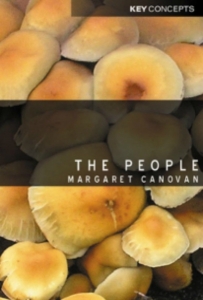 The People. Margaret Canovan. Polity. 2005.
The People. Margaret Canovan. Polity. 2005.
The British political philosopher Margaret Canovan, who sadly died last year, is without doubt thé doyenne of contemporary populism studies. Her seminal book Populism (1981) might no longer be as useful as it used to be, but it has profoundly influenced most of the leading populism scholars today. Although her last book, The People, is technically not on populism, it discusses three interpretations of ‘the people’, which are crucial to understanding the different types of populism we see today.
Focusing primarily on the Front National in France, with comparative reference to Italy and beyond, US sociologist Mabel Berezin was one of the first academics to position the rise of (right-wing) populism in the broader neoliberal context of post-Maastricht Europe. The book’s emphasis on the importance of culture and security ties in perfectly with the more recent reactions to Jihadi terrorism and the so-called ‘refugee crisis’ in Europe.
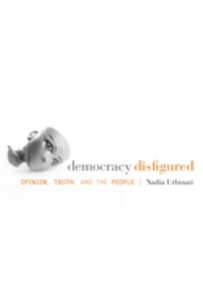 Democracy Disfigured: Opinion, Truth and the People. Nadia Urbinati. Harvard University Press. 2014.
Democracy Disfigured: Opinion, Truth and the People. Nadia Urbinati. Harvard University Press. 2014.
The Italian political theorist Nadia Urbinati is one of the longest-serving scholars of populism, even if her work has not had the widespread reception it deserves. In Democracy Disfigured, she focuses on three contemporary challenges to liberal democracy: ‘epistemic’ (i.e. technocracy), populism and plebiscitarianism. Broader in scope and not easily accessible to non-academic audiences, it offers a sophisticated analysis of populism in its wider democratic context.
 The Politics of Fear: What Right-Wing Populist Discourses Mean. Ruth Wodak. Sage. 2015.
The Politics of Fear: What Right-Wing Populist Discourses Mean. Ruth Wodak. Sage. 2015.
Austrian discourse analyst Ruth Wodak has written many texts on both the far right and populism over the past decades. The Politics of Fear is her masterwork, in which she analyses and explains how right-wing populist parties use fear in their political discourses. Drawing in particular on the Austrian Freedom Party (FPÖ), from her native Austria, Wodak provides a template for future studies of populist discourses.
 For a Left Populism. Chantal Mouffe. Verso. 2018.
For a Left Populism. Chantal Mouffe. Verso. 2018.
Together with her late husband, Ernesto Laclau, the Belgian philosopher Chantal Mouffe counts as one of the most vocal defenders of left-wing populism. Her latest book is more a pamphlet in defense of social democratic politics, which she, somewhat unfortunately, refers to as ‘left populism’. What it lacks in intellectual depth and originality, this short book compensates for with authentic passion. Moreover, For a Left Populism is a perfect introduction into, and summary of, Mouffe’s distinctive but influential theoretical framework on democracy and populism. Read the LSE RB review here.
Note: This reading list gives the views of the author, and not the position of the LSE Review of Books blog, or of the London School of Economics.



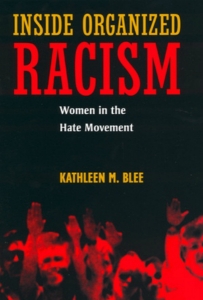 Inside Organized Racism: Women in the Hate Movement. Kathleen Blee. University of California Press. 2003.
Inside Organized Racism: Women in the Hate Movement. Kathleen Blee. University of California Press. 2003.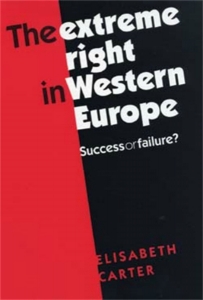 The Extreme Right in Western Europe: Success or Failure? Elisabeth Carter. Manchester University Press. 2005.
The Extreme Right in Western Europe: Success or Failure? Elisabeth Carter. Manchester University Press. 2005.  Mobilizing on the Extreme Right: Germany, Italy and the United States. Manuela Caiani, Donatella della Porta and Claudius Wagemann. Oxford University Press, 2012.
Mobilizing on the Extreme Right: Germany, Italy and the United States. Manuela Caiani, Donatella della Porta and Claudius Wagemann. Oxford University Press, 2012. Bring the War Home: The White Power Movement and Paramilitary America. Kathleen Belew. Harvard University Press, 2018.
Bring the War Home: The White Power Movement and Paramilitary America. Kathleen Belew. Harvard University Press, 2018. The Extreme Gone Mainstream: Commercialization and Far Right Youth Culture in Germany. Cynthia Miller-Idriss. Princeton University Press. 2018.
The Extreme Gone Mainstream: Commercialization and Far Right Youth Culture in Germany. Cynthia Miller-Idriss. Princeton University Press. 2018.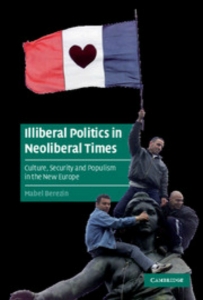 Illiberal Politics in Neoliberal Times: Culture, Security and Populism in the New Europe. Mabel Berezin. Cambridge University Press. 2009.
Illiberal Politics in Neoliberal Times: Culture, Security and Populism in the New Europe. Mabel Berezin. Cambridge University Press. 2009.
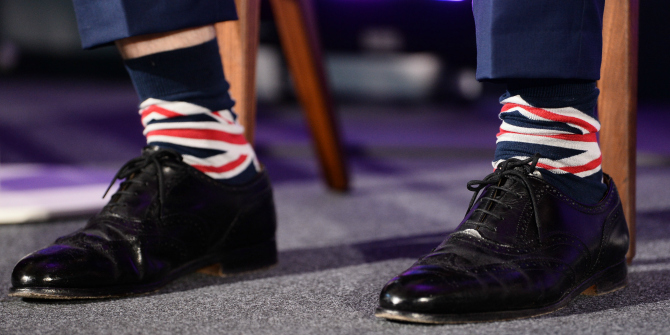




For Brazil’s far right readings don’t miss the great Rosana Pinheiro-Machado (@_pinheira on Twitter)
For Brazil’s far right readings don’t miss the great Rosana Pinheiro-Machado (@_pinheira ok Twitter)
You should add ‘How to Lose a Country’ by Ece Temelkuran, a wonderful addition to the field: http://www.4thestate.co.uk/book/how-to-lose-a-country/
Although she unfortunately labels Tea Party supporters as ‘far right’, Arlie Russell Hochschild’s ‘Strangers in their Own Land’ is a fascinating ethnographic window into the emotional dynamics of populist appeal.